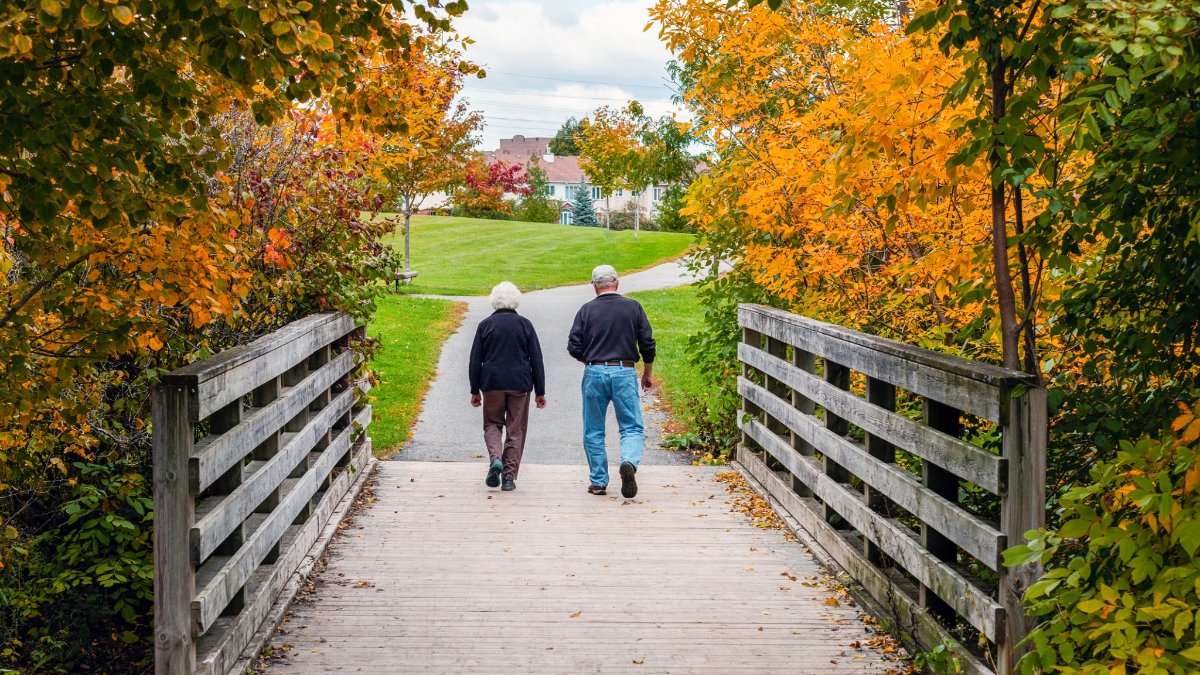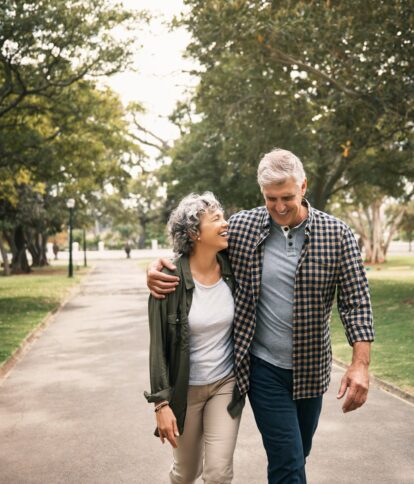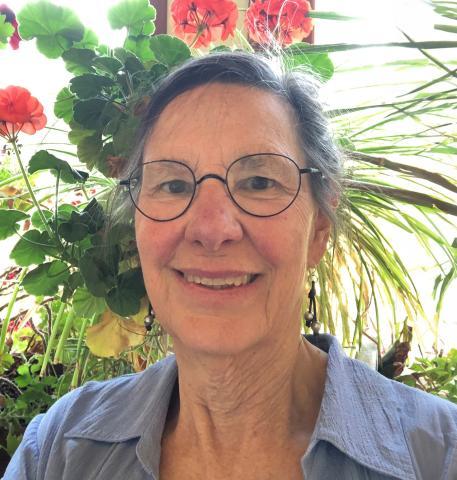Living With Macular Degeneration
Learning that you have age-related macular degeneration (AMD) can be worrisome for you and your family. You’ll have questions about the disease, how to manage it, and how to cope with vision loss. The best way to adapt to vision loss is to learn new ways of doing things.

Macular Degeneration: What to Expect
It's natural to be frightened of losing vision or going blind when you are initially diagnosed with macular degeneration. Fortunately, most people with macular degeneration can retain good vision for their entire lives. Even those who lose their central vision almost always maintain their side, or peripheral vision. While there is currently no cure for the disease, treatment can help manage your vision loss. Through training and adaptive devices, leaning into your other senses, and practicing a healthy lifestyle, you can improve your level of independence and quality of life.
Visual Rehabilitation for Macular Degeneration
Visual rehabilitation can help you adjust and function better with your remaining vision, although it cannot restore vision that has been permanently lost.
Talk to Your Doctor
Let your eye doctor know what kind of limitations you are experiencing due to your vision loss.
Get Your Prescription
Your doctor can then prescribe optical devices, such as magnifiers.
Find Your Personalized Plan
Your doctor may refer you to a vision rehabilitation center, eye clinic, or other organization where a low-vision therapist can make personalized recommendations to help you adapt to daily living activities.

Using Your Other Senses
Most people with low vision are surprised to find out how much information they can obtain from their senses of hearing, touch, and peripheral vision.
Adapting to Life with Low Vision
Discover practical tips for maintaining quality of life with low vision in this Macular Chats episode.
Vision Loss and Mental Health
Learn more about how macular degeneration can impact your mental health—and what you can do to protect your headspace.
Macular Degeneration Resources
Find resources and information that provide products, services, and other support for people with macular degeneration and their families.

Healthy Living With Macular Degeneration
People who are visually impaired benefit from a healthy lifestyle that contributes to overall well-being. This includes regular exercise (adjusted to ensure safety), a nutritious diet that may help protect remaining vision, and taking certain precautions day-to-day.
Enrich Your Diet With “Vision-Boosting” Foods
Your eye health and overall well-being benefit from a nutritious diet rich in the vitamins and minerals your body needs. This includes dark leafy greens, yellow and orange fruits, fatty fish, and whole grains. Evidence suggests that excessive simple sugars and red meat are risk factors for AMD.
Vitamins for Dry Macular Degeneration
The National Institutes of Health’s Age-Related Eye Disease Study 2 (AREDS2) showed that taking nutritional supplements with a specific high-dose formulation of antioxidants can delay or prevent the progression of dry AMD from the intermediate to the advanced stage.
Exercise Regularly and Safely
Exercise may reduce inflammation, which is a key contributor to macular degeneration. It can also help lower eye pressure, which improves blood flow to the retina and optic nerve. Before beginning any exercise program consult with your doctor. An occupational therapist or other specialist can help you adjust your exercises to ensure safety.
Minimize Sun Exposure
Sunlight exposure may increase the risk of macular degeneration. To prevent overexposure to sunlight, wear wide-brimmed hats outdoors and use high-quality sunglasses with a UVA and UVB rating of 99 to 100 percent.
Don't Smoke
The U.S. Centers for Disease Control and Prevention says that smoking is as bad for your eyesight as it is for the rest of your body. Smokers are more than twice as likely as nonsmokers to get macular degeneration. Smoking causes a narrowing of the blood vessels, which reduces blood supply to the eyes. If you smoke, make a practical plan to quit with your doctor’s help.
Building Your Support System
If you or a loved one has macular degeneration, it can be very difficult to learn to cope with low vision, which is why support from family, friends, and community providers is crucial. Asking for help may seem awkward, but it can be key to supporting your quality of life and maintaining your independence.
How To Find Support Once Diagnosed:
- Join our AMD Community Circle and attend monthly Macular Chats to build community and learn more about living with macular degeneration.
- Build your medical support team, including eye care specialists and low-vision therapists, to help you manage your care and continue daily activities with the help of various supports.
- Openly communicate and ask for help. Have a frank discussion with friends and family about what you need and where you could use some assistance.
- The website Lotsa Helping Hands makes it easy to ask family and friends to help. This online tool provides a free private group calendar for caregivers, friends, family members, and other volunteers.
- Make a list of resources and keep it handy, including government benefits, financial aid, and long-term care.
Confused by the Medical Lingo?
Were you or a loved one recently diagnosed with macular degeneration but feel lost when trying to decipher the diagnosis given by your physician? Use our handy disease glossary to learn more about the terms you’ve been hearing.
Search for Macular Degeneration Clinical Trials
Clinical trials are crucial to advancing the most effective medical approaches. Today’s studies will lead to new standards of care in the future.
Together, We Can Stop Macular Degeneration
As many as 20 million Americans have macular degeneration. Your support helps fund research studies to defeat this disease and provide vital information to the public.

Resources
Recent Resources & Information

Expert Information
Financial Aid for Macular Degeneration Medications
Learn about financial aid resources that may be available to help cover the costs of your macular degeneration prescription medications.

Macular Chats
Adapting to Life with Low Vision
Learn about practical tips for maintaining quality of life with low vision.

Expert Information
Top Holiday Travel Tips for People with Low Vision
An expert shares must-know travel strategies and essential apps for a successful trip with low vision.

Macular Chats
Taking Charge of Your Geographic Atrophy
Hear from guest expert Dr. Veeral Sheth about the latest treatments and research breakthroughs for geographic atrophy, and what you can do to protect your vision.

Story
An Artist’s Journey with Macular Degeneration: Wyncia’s Story
Learn tips for living with low vision.

Expert Information
Macular Degeneration: Vision Loss and Mental Health
Learn about the link between macular degeneration and mental health. Learn how AMD affects emotional well-being and find resources for coping with vision loss-related stress and depression.



